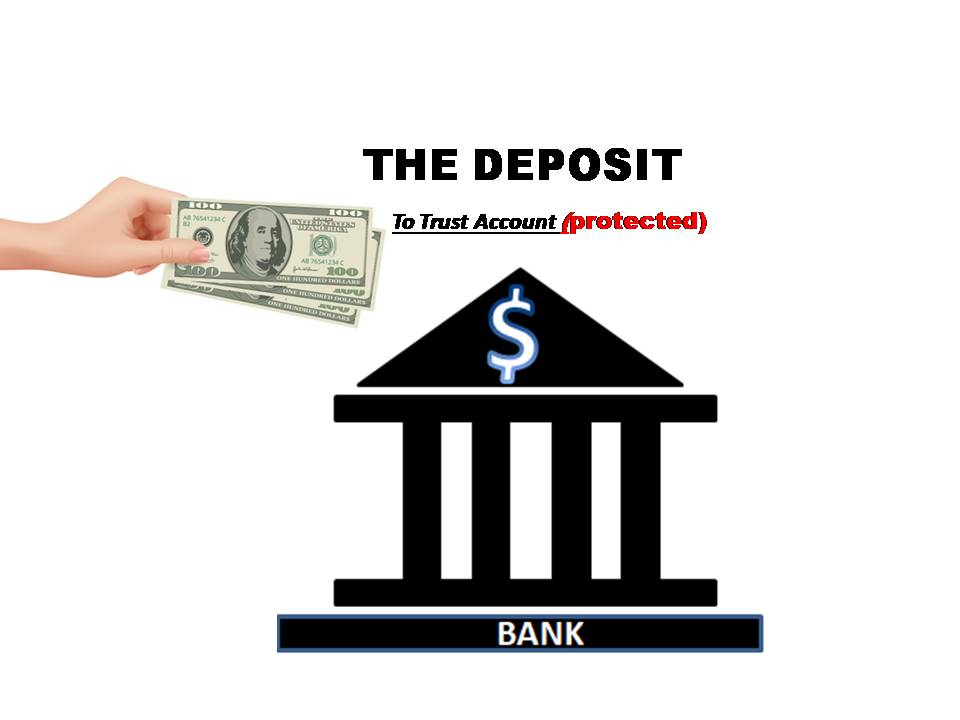
Read For Me
THE DEPOSIT
By: Lorne Shuman / April 26, 2021 (https://www.shumanlaw.ca/the-deposit/)
When you make an offer to purchase a house, you have to put down a deposit. This newsletter will focus on some points to keep in mind about deposits and answer some common questions about deposits when you purchase a property.
When must be deposited paid?
In Ontario, the standard Agreement of Purchase and Sale allows the Buyer options with regards to payment of the deposit. The deposit can be paid immediately when submitting the offer or it can be paid once the offer is accepted by the Seller. Most Buyers prefer the second option. If however, you are in a bidding war, your realtor will encourage you to pay the deposit immediately as a gesture of good faith to the Seller.
Can a Buyer get out of a deal by refusing to pay the deposit?
The answer to this question is no. Once the offer is accepted by the Seller, you as a Buyer cannot change your mind. If you do, the Seller may relist the property sell it to another Buyer. Further, if the Seller sells the property to a second Buyer and receives less money than what you offered, the Seller may sue you for its losses together with legal fees and other costs.
What happens if the deposit is paid late?
If a Buyer pays a deposit late, the Seller may elect to cancel the deal. This is because time limits matter in a real estate contract. It is therefore important to ensure that a Buyer meets all of the deadlines set out in the Agreement of Purchase and Sale including when the deposit must be paid.
How much should be paid as a deposit?
This varies from case to case and will often depend on the market and the advice of your realtor. Typically, five (5) % of the purchase price is given as a deposit, however, the deposit is subject to negotiation, just like the purchase price. The Seller will want to secure the largest deposit possible whereas the Buyer will want to pay the smallest deposit possible. In an overheated market, like we have today, Buyers may be forced to provide a larger deposit than they would like to. The amount of the deposit becomes relevant where the deal does not close.
Why is the deposit made payable to the Listing Agent’s brokerage and not the Seller itself?
The simple reason is that by having the deposit held by the brokerage, the deposit is better protected. If the deposit is given directly to the Seller, the Seller could disappear with the funds and the Buyer would have little recourse. By having the deposit with the brokerage, the funds are held in trust and protected by legislation.
What happens to the deposit if the deal does not close?
This is a common question and many are surprised by the answer. If the deal does not close, the deposit is not automatically released to either the Seller or the Buyer. The brokerage holding the deposit will only release the deposit if the parties sign a mutual release or by court order. Many Sellers are under the mistaken belief that they automatically receive the deposit if the Buyer breaches the Agreement and does not close. This is not the case. Conversely, if the Seller is at fault, the Buyer cannot demand the return of its deposit. In the event of a dispute between the parties resulting in the deal not closing, the parties must obtain legal advice to protect their respective interests.
ISENBERG & SHUMAN (416) 225-5136 info@shumanlaw.ca 5075 Yonge St, Suite 804 Toronto, ON, M2N 6C6
Have Questions?
Don’t hesitate to contact me with any questions or comments you may have. I am here to help!
